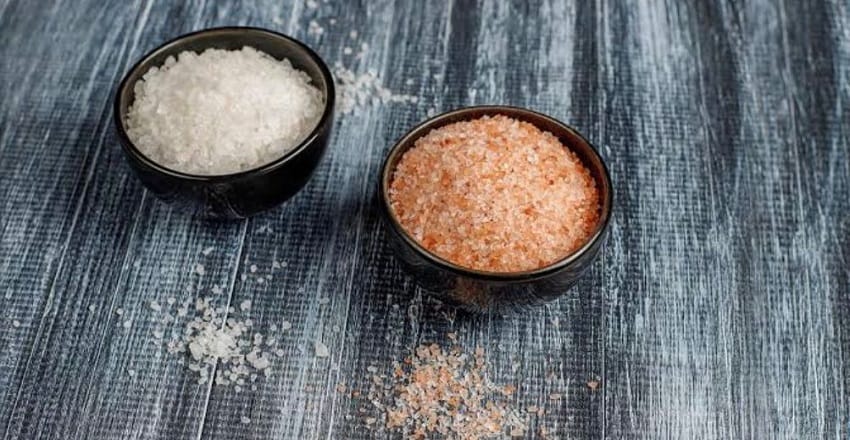Natural Salt vs. Table Salt: A Healthier Choice
Choosing the right salt is crucial for health. This article explores the benefits of natural salts, such as Himalayan pink salt and sendha namak (rock salt), and explains why refined white table salt should be avoided. Understanding the differences between these types of salt can significantly impact your well-being.
Benefits of Himalayan Pink Salt
Himalayan pink salt offers several health advantages:
- Rich in Minerals: This natural salt contains essential trace elements like magnesium, potassium, and calcium, which support overall health.
- Improves Digestion: It enhances nutrient absorption and stimulates digestive enzymes.
- Balances Electrolytes: Himalayan salt helps maintain fluid balance, supporting muscle and nerve function.
- Regulates Blood Pressure: This natural sodium source helps manage blood pressure without causing excessive water retention.
- Supports pH Balance: It helps maintain an alkaline environment in the body, reducing acidity.
- Aids in Metabolism: Himalayan pink salt promotes cellular energy production, boosting overall metabolism.
Benefits of Sendha Namak (Rock Salt)
Sendha namak, also known as rock salt, provides unique benefits:
- Improves Digestion: This natural salt is known for relieving indigestion, bloating, and gas by stimulating digestive fire (Agni).
- Balances Doshas: In Ayurvedic practices, sendha namak helps pacify Vata and Pitta doshas.
- Provides Essential Minerals: It supplies calcium, potassium, and magnesium, crucial for healthy muscles and nerves.
- Supports Hydration: This natural salt restores electrolytes, making it ideal for fasting or physical activity.
- Regulates Acid Levels: Sendha namak neutralizes excess stomach acid, reducing acidity.
- Promotes Heart Health: Its natural composition supports cardiovascular health and helps regulate blood pressure.
Why White Table Salt Should Be Avoided
Refined white table salt presents several drawbacks:
- Highly Refined: The refining process removes natural minerals, leaving primarily sodium chloride, making it nutritionally poor compared to natural salt options.
- Contains Harmful Additives: Anti-caking agents and chemicals, like aluminum silicate, are often added, which may have adverse health effects.
- Synthetic Iodine: The added iodine is often synthetic and less bioavailable than natural iodine sources found in some natural salts.
- Leads to Water Retention: It can cause bloating and high blood pressure due to disrupted fluid balance.
- Imbalance of Electrolytes: Lacking trace minerals, it can contribute to muscle cramps, fatigue, and nerve issues.
- Health Risks: Excessive consumption of table salt is linked to hypertension, kidney problems, and cardiovascular issues.
Conclusion: Choosing Natural Salt
Natural salts like Himalayan pink salt and sendha namak are superior to refined white table salt. These natural alternatives provide essential minerals, support digestion, balance electrolytes, and promote overall health, making them a healthier choice for daily use. When considering natural salt vs. table salt, the benefits of natural options are clear.
Contact us right now to know more!



